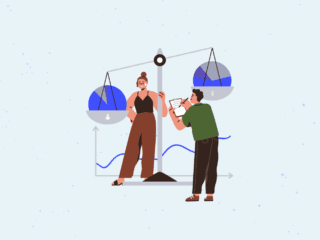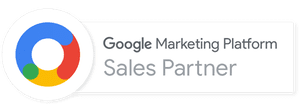Earlier this week I attended the XChange web analytics conference held by Semphonic and Web Analytics Demystified in San Francisco. Congrats to Gary Angel, his team, and Eric Peterson on such a great conference and creating an environment of knowledge sharing. Attendees included web analytics practitioners, vendors, researchers and consultants.
The main reason I decided to attend the conference was to engage in conversations with practitioners, listen to their success stories, and and as importantly hear the issues they are facing – whether it is technology related (analytics solution/implementation), measurement process, or the brains behind all of the above, people: the analysts and specialists that make it all happen.
The sessions (or huddles as they were called) that I attended were:
- Getting Analysts to produce analysis and getting the business to listen. It was really interesting to hear how so many companies have the same challenges!
- Campaign Attribution. Which marketing dollar brought this lead or this sale? No easy answer here! Was it the the PPC ad, was it that banner, or to make things more fun, was it the cool TV campaign that just went live. As an industry, we have some time to crack this attribution nut to the degree that our CFOs and business folks like it to be. But some really good ideas on correlation and modeling were discussed.
- Web Analytics – A Center of Excellence. Where does Web Analytics reside? What is web analytics excellence? Is it to give decision makers relevant and accurate data?
- B2B metrics and best practices. I really enjoyed this session and took some good notes on neat segmentation strategies, multivariate testing, and behavioral targeting practices that resulted in significant lifts in engagement and conversion.
- I also attended a huddle on Mobile. Are you getting visits from mobile devices, is this something measurable (some of the analytics tool today will identify your mobile traffic), and what’s actionable here? Maybe if you show your boss or your client that 10% of your site traffic is coming from mobile devices and having a heck of a time navigating the not-so-mobile-friendly website, maybe you can get a budget to do something about it.
The part that I really enjoyed was networking. Plenty of opportunities to network, have one-on-one sessions and engage some of the industry’s brightest minds.
One interesting observation I had was some people’s views of Google Analytics. As a disclaimer: if you are reading our blog, you probably already know that we are a Google Analytics Authorized Consultant (GAAC) company. While we know some of the other tools, we are a Google Analytics firm and this is what we decided to specialize in.
What is the observation? It was really interesting to hear that:
- Google Analytics is for your mom and pop shop type implementations and if you need something more elaborate you need to go to the high end solutions. My comment was knowing many of the GAACs and looking at their customer lists, and seeing some of the sophisticated implementations first hand, it makes me wonder how this perception keeps coming up. Also, looking at some of the enhancements that Google added in the last several months should highlight the advanced nature of the tool. Event tracking, still in beta, is definitely not low end. Neither are the on-site search integration nor the industry benchmarking features, to name a few. Google doesn’t comment on upcoming features and release dates, but judging by the recent past one would expect more and more extremely useful features to be released.
- Google Analytics lacks the professional services and support infrastructure of a high end solution. My comment: last I checked Google created an echo-system of GA professional services providers, including over 20 GAACs in the US and many others in Europe, Latin America.
- I even hear that you can’t do segmentation with Google Analytics or it can’t do funnel analysis. You can definitely give us a call and one of our GA specialists will guide you through it.
- And then there was the privacy issue and Google will use our analytics data to up the bids on our AdWords campaigns. My comment: I see where this concern is coming from but Google has addressed these issues publicly; in my opinion it would be a horrible PR for them to act otherwise. Read Brian Clifton’s post on Google & privacy for more details.
I don’t intend on doing a feature-by-feature comparison of Google Analytics and other web analytics solutions. Yes, it is a known fact that Google Analytics doesn’t have features that other tools have. A lot has been published already on the subject so I won’t go into details.
My issue is the way some solution providers, consultants, and researchers try to portray Google Analytics as tool for the beginners, as the starting point, and as something that you can tinker with then graduate to something more powerful. I think this is the wrong advice and it is very misleading.
I’ll give you an example. During the analytics conference, I spoke with a very smart individual who happens to be the newly hired web analyst for his organization. In fact, he is the first ever web analyst within this organization. What I later learned is that his company has some one hundred websites with a huge amount of traffic, and for years now they have been paying a premium for their web analytics tool, year in and year out. But when it came to analysis/insights/people/process, no efforts have been taken. When CEO, CFOs, CMOs, Directors of Analytics keep hearing that you should spend your dollars of the high end tool, that is exactly what they seem to be doing: spending their budgets on the tool.
This is really disturbing and it won’t serve the long term interest of any party involved. Wouldn’t this organization be served better if their resources went to bring in analytics talent instead? As an industry, wouldn’t it be better off if our clients have more success with analytics (more success stories for all of us) instead of complaining about the fees they pay and the lack of results?

















